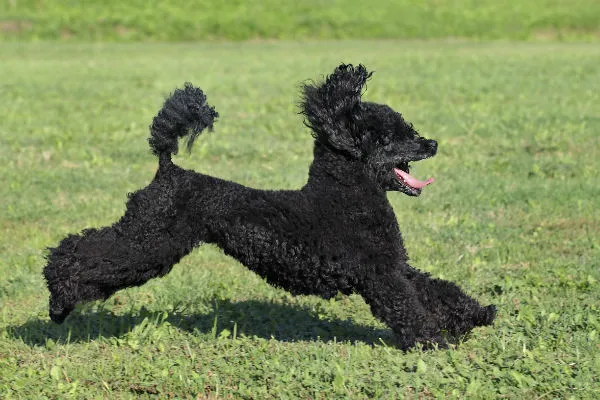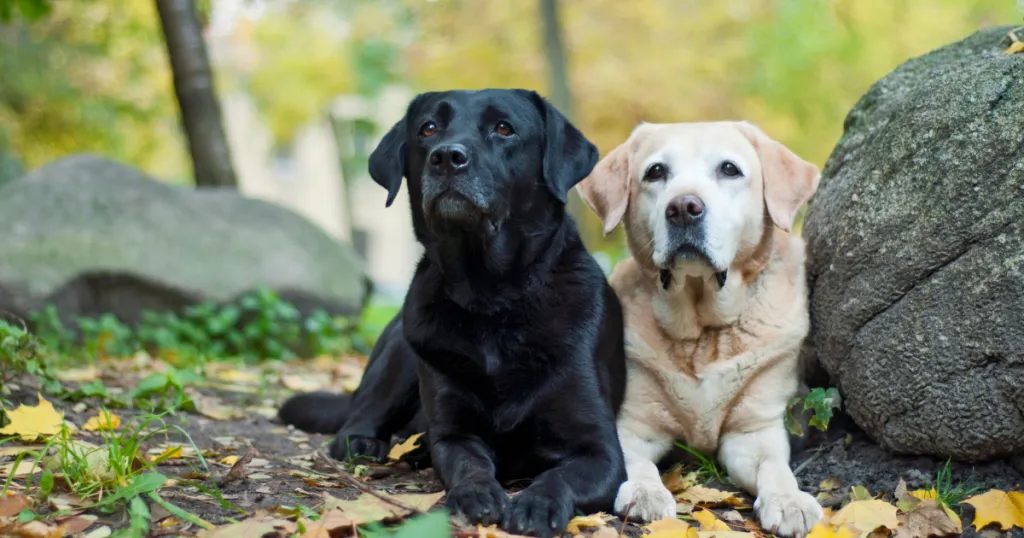For many, dogs transcend the role of mere pets, evolving into indispensable family members who offer unwavering support, comfort, and a sense of calm during life’s most challenging moments. If you’re navigating the complexities of anxiety or depression, you might already have a canine companion who plays a crucial role in your well-being, perhaps without realizing their full potential as an emotional support dog. These incredible animals provide a unique, grounding presence that can significantly improve quality of life. Understanding the distinction between service dogs and emotional support dogs is key, and recognizing which breeds possess the inherent traits that make them ideal candidates for these vital roles is essential for those seeking a therapeutic canine partner.
While any dog can offer companionship, certain breeds are naturally predisposed to excel as emotional support animals. These dogs often exhibit gentle dispositions, a sociable nature, and a strong desire to please their human companions, making them particularly well-suited to alleviate symptoms of anxiety and depression. The journey of finding the right dog is deeply personal, and exploring the characteristics of various breeds can help you identify a furry friend who can offer profound emotional stability and unconditional love.
best dog breed for anxiety service dog | dog breeds best for emotional support
Understanding the Difference: Service Dogs vs. Emotional Support Dogs
It’s crucial to distinguish between service dogs and emotional support animals (ESAs), including emotional support dogs (ESDs). Service animals are rigorously trained to perform specific tasks that directly assist individuals with disabilities. These tasks can range from alerting a handler to an impending medical event, retrieving dropped items for someone with mobility issues, or guiding a visually impaired person. Their training is specialized and often regulated.
Emotional support dogs, on the other hand, do not require task-specific training. Their primary role is to provide comfort, companionship, and a therapeutic presence to individuals experiencing mental health conditions like anxiety and depression. The bond and affection they offer are their therapeutic tools. While any breed can potentially be an ESD, some breeds possess temperaments and characteristics that make them more naturally inclined to fulfill this role effectively.
The Profound Benefits of Emotional Support Dogs
The impact of an emotional support dog on an individual’s mental health can be transformative. These canine companions offer a unique blend of benefits that directly address many challenges associated with anxiety and depression:
Enhanced Sleep Quality
For individuals struggling with anxiety or depression, sleep disturbances are common and can exacerbate symptoms. An ESD can provide a sense of security and comfort, making it easier to fall asleep and remain asleep throughout the night. Their consistent, calming presence can act as a buffer against anxious thoughts that often interfere with rest.
Improved Emotion Regulation
ESDs are highly attuned to their owner’s emotional state. They can sense when their human is experiencing distress or an emotional shift and often intervene with gentle nudges, licks, or simply by being present. This ability to sense and respond can help individuals recognize and manage their emotions more effectively, preventing them from becoming overwhelming.
Facilitated Socialization
Interacting with an ESD can serve as a natural catalyst for social interaction. Taking a dog for a walk in the park or simply being seen with a well-behaved dog can encourage conversations with others, breaking down social barriers that may feel daunting to someone experiencing social anxiety or isolation due to depression. Dogs often act as social lubricants, making connections easier and more organic.
Structured Daily Routine
The responsibility of caring for a dog inherently creates a structured daily routine. The need to feed, walk, and play with their ESD provides individuals with a sense of purpose and a reason to engage in daily activities, even on days when motivation is low. This consistent structure can be incredibly grounding and beneficial for mental well-being.
Choosing the Right Breed: Key Considerations
When selecting an emotional support dog, several factors are important to consider, beyond just breed. Your lifestyle, living situation, and personal preferences all play a significant role. Key criteria include temperament, energy level, and shedding. While dog hair might seem like a small price to pay for unconditional love, it’s a practical consideration for many.
Small vs. Medium to Large Breeds
Both small and medium to large breeds can make excellent emotional support dogs.
Small ESDs are often ideal for those living in smaller spaces, such as apartments, or who travel frequently. Their compact size makes them easier to manage in various environments and often simplifies airline travel due to fewer restrictions. They are also perfect for individuals who enjoy having a dog that can comfortably sit on their lap.
Medium to large ESDs can be a great fit for individuals with more living space, perhaps with a yard. Their larger presence can also offer a greater sense of security. A more energetic dog, regardless of size, can motivate their owner to be more physically active, leading to improved physical and mental health through exercise and the release of endorphins.
Top Dog Breeds for Anxiety and Depression
Here’s a look at some of the most highly recommended breeds, categorized by size, that often possess the traits ideal for an emotional support role:
Small Emotional Support Dog Breeds
Chihuahuas: Despite their diminutive size, Chihuahuas possess large personalities and are fiercely loyal. They are alert, energetic, and form deep bonds with their owners. Their small stature makes them well-suited for apartment living and easy to transport.
- Pros: Kid-friendly (with supervision), adaptable, long lifespan, confident, loyal.
- Cons: Can be yappy and feisty, shed seasonally.
 Chihuahua dog
Chihuahua dogPoodles (Toy, Miniature, Standard): Poodles are renowned for their exceptional intelligence, trainability, and hypoallergenic coats, making them a popular choice for allergy sufferers. They are graceful, energetic, and eager to please.
- Pros: Highly intelligent, trainable, active, non-shedding.
- Cons: Require regular grooming, need space to expend energy.
 Poodle dog
Poodle dogCavalier King Charles Spaniels: These affectionate and elegant dogs thrive on human connection and are known for their gentle, loving nature. They are adaptable to various living situations and are typically good with children and other pets.
- Pros: Sweet temperament, love to cuddle, gentle, friendly, playful, eager to please.
- Cons: Shed heavily, can be timid, require regular walks and playtime.
 Cavalier King Charles Spaniel dog
Cavalier King Charles Spaniel dogCorgis (Pembroke Welsh & Cardigan Welsh): Charming and intelligent, Corgis are playful dogs with a strong herding instinct. They are affectionate, surprisingly athletic, and make good watchdogs.
- Pros: Intelligent, alert, protective, friendly, obedient, light-hearted.
- Cons: Require significant exercise due to herding instincts, shed heavily.
 Corgi dog
Corgi dogPugs: With their distinctive wrinkled faces and curly tails, Pugs are beloved for their affectionate and playful personalities. They thrive on companionship and are known for their human-like expressions and ability to bring laughter.
- Pros: Expressive, versatile, adapt well to different settings, affectionate, playful, minimal shedding.
- Cons: Training is important for managing energy, can be mischievous.
 Pug dog
Pug dogDachshunds: Instantly recognizable by their long bodies and short legs, Dachshunds are courageous, clever, and full of personality. They are loyal and make lively, loving pets.
- Pros: Highly trainable, affectionate, playful, excellent family companions, energetic.
- Cons: Require obedience training, need regular ear cleaning, can be stubborn, prone to digging.
 Dachshund dog
Dachshund dogYorkshire Terriers (“Yorkies”): Small but bold, Yorkies are known for their silky coats and confident personalities. They are energetic, intelligent, and fiercely loyal, making them devoted companions.
- Pros: Small and portable, good travel companions, trainable, non-shedding coat (requires grooming), curious, brave.
- Cons: Can be yappy, require regular grooming and exercise, small size can lead to accidental injury.
 Yorkshire Terrier dog
Yorkshire Terrier dogBichon Frises: These small, white, cloud-like dogs are cheerful and possess hypoallergenic coats. They are friendly, social, and love being around people, making them excellent family pets.
- Pros: Hypoallergenic coat, easy-going, intelligent, alert watchdogs, curious, warm, shed minimally.
- Cons: White coat requires diligent cleaning, energetic and need daily exercise.
 Bichon Frise dog
Bichon Frise dog
Medium to Large Emotional Support Dog Breeds
Golden Retrievers: Consistently ranked as one of the most popular breeds, Golden Retrievers are known for their friendly disposition, intelligence, and unwavering loyalty. They are gentle, eager to please, and excel in various roles, including service work.
- Pros: Friendly, kind, bonded well, even-tempered, excellent at retrieving tasks, huggable.
- Cons: Shed profusely, prone to hip and skin issues, require significant exercise, high cancer rates.
 Golden Retriever dog
Golden Retriever dogLabrador Retrievers: Beloved for their outgoing nature, intelligence, and versatility, Labs are highly trainable and make wonderful family pets. They are known for their love of water and outdoor activities.
- Pros: Contribute to happiness and reduce depression, cheerful, even-tempered, easily trained, responsive and calm, easily pick up routines, love to please.
- Cons: High energy and require daily exercise, highly food-motivated, can be slobbery kissers.
 Labrador Retriever dog
Labrador Retriever dogIrish Wolfhounds: These gentle giants are one of the tallest breeds, known for their impressive size combined with a calm and affectionate temperament. Despite their stature, they are gentle with families and children.
- Pros: Naturally protective and patient, sensitive to mood changes, improve human mood.
- Cons: Short lifespan (around 6 years), very large and require ample space.
 Irish Wolfhound dog
Irish Wolfhound dogBorder Collies: Widely recognized as one of the smartest breeds, Border Collies are highly intelligent, agile, and possess incredible stamina. They thrive on mental and physical challenges and are devoted to their owners.
- Pros: Highly intelligent, fearless, affectionate, devoted, intuitive to feelings, excel in canine competitions.
- Cons: Sensitive to sound, high risk of eye and hip issues, may not be ideal for very young children.
 Border Collie dog
Border Collie dogGerman Shepherds: Known for their intelligence, courage, and strong work ethic, German Shepherds are loyal and devoted companions. They thrive on having a job to do and are excellent guardians.
- Pros: Super intelligent, strong, agile, protective, loyal, adapt easily, take guarding roles seriously.
- Cons: High stamina and require significant outdoor time, shed heavily.
 German Shepherd dog
German Shepherd dog
Consider a Rescue Dog
Adopting a rescue dog, often a mixed breed, can also lead to finding an exceptional emotional support animal. These dogs can be just as loving, compassionate, loyal, and trainable as purebreds, offering a unique bond and the satisfaction of giving a deserving animal a second chance.
small dog breeds for emotional support | best small dog breeds for emotional support
Breeds That May Be Less Suitable
While any dog can offer support, some breeds may be less inclined to be cuddly or overtly affectionate, which can be a key factor for an ESD. Breeds like the Shar Pei, known for their loyalty but not always their cuddliness, or the independent Shiba Inu and Pekingese, who tend to be less outwardly affectionate, might not be the best fit for this specific role.
Emotional support dogs provide a unique and powerful form of comfort, stability, and unconditional love. For individuals navigating anxiety and depression, the presence of an ESD can profoundly improve their daily lives, enhance mood, increase confidence, and foster a deeper sense of well-being. Consulting with a licensed mental health professional is the first step in understanding how an emotional support dog might fit into your path to recovery and a more fulfilling life.


 Poodle dog
Poodle dog Cavalier King Charles Spaniel dog
Cavalier King Charles Spaniel dog Corgi dog
Corgi dog Pug dog
Pug dog Dachshund dog
Dachshund dog Yorkshire Terrier dog
Yorkshire Terrier dog Bichon Frise dog
Bichon Frise dog Golden Retriever dog
Golden Retriever dog Labrador Retriever dog
Labrador Retriever dog Irish Wolfhound dog
Irish Wolfhound dog Border Collie dog
Border Collie dog German Shepherd dog
German Shepherd dog